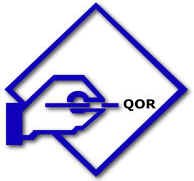New Sanctions Imposed on Persons Contributing to the Conflict in Somalia: Challenges for Cargo Vessels, Insurers, Reinsurers and Financial Institutions
by John B. Reynolds, III, Amy E. Worlton and Cari N. Stinebower
On April 13, 2010, President Obama signed the Executive Order Blocking Property of Certain Persons Contributing to the Conflict in Somalia.[1]Specifically, through this Order, the President declared a national emergency with respect to the deteriorating security situation and the persistence of violence in Somalia, as well as the acts of piracy and armed robbery at sea off of the coast of Somalia. As a result of this national emergency, the President blocked all property and interests in property of persons listed in the Annex to the Order or later designated by the Secretary of the Treasury. The Somalia sanctions program appears consistent with Office of Foreign Assets Control’s (OFAC) focus on “smart” or list-based sanctions and requires little additional diligence by most U.S. persons who are already screening against OFAC’s Specially Designated Nationals and Blocked Persons (SDN) list. Nonetheless, those U.S. persons who are the victims of Somali piracy now face additional hurdles in securing the safe return of individuals held captive and in reclaiming their property. The Order also imposes new obligations on the owners of cargo vessels and their insurers, reinsurers and financial institutions in the event they face demands for ransom payments to recover people or property.
Targets of the Sanctions
In addition to targeting those engaged in piracy and armed robbery off of the Somali Coast, Section 1 of the Order calls for the implementation of sanctions on other persons who threaten the peace, security or stability of Somalia. These persons are identified as those who, directly or indirectly:
Threaten the Djibouti Agreement of August 18, 2008[2]or the corresponding political process;
Threaten the Transitional Federal Institutions, the African Union Mission in Somalia (AMISOM), or other international peacekeeping operations related to Somalia;
Obstruct the delivery of humanitarian assistance to Somalia, or access to, or distribution of, humanitarian assistance in Somalia;
Supply, sell to, or transfer to Somalia arms or related material or technical advice, training or assistance (including financing and financial assistance) relating to military activities;
Receive arms, related material or technical advice, training or assistance (including financing and financial assistance) relating to military activities;
Materially assist, sponsor, or provide financial, material, logistical or technical support for, or goods or services in support of, the activities described above.
Compliance Implications
Consistent with its practice in other programs, OFAC will designate persons (individuals or entities) who meet this criteria.[3]From a practical perspective, however, the compliance challenge lies with those industries affected by Somali piracy. For example, the shipping company whose vessel is captured off of the coast of Somalia, in addition to determining whether to negotiate with the pirates, will also have to determine whether any sanctioned pirates are involved anywhere in the chain of events. Out of an abundance of caution, one would expect that a U.S.-based shipping company would presume an SDN is involved and would work with his insurance company and its financial institution to obtain the necessary authorization from OFAC before dealing with the pirates. One also would expect that OFAC will institute expedited licensing procedures to reflect the danger and urgency of pirate hostage-taking situations. Where a non-U.S. shipper is a victim of piracy but a U.S. insurer, reinsurer or financial institution is involved, the compliance burden is likely to shift to those parties. Compliance with of these sanctions will depend on practical implementing regulations from OFAC.
[1] Published at: http://www.treas.gov/offices/enforcement/ofac/legal/eo/eo_somalia.pdf .
[2] The Djibouti Agreement is available at: http://unpos.unmissions.org/Portals/UNPOS/Repository%20UNPOS/080818%20-%20Djibouti%20Agreement.pdf . The Agreement states that is purpose is to ensure the cessation of all armed confrontation and a political settlement for a durable peace; promote a peaceful environment; avoid a security vacuum; facilitate the protection of the population and the unhindered delivery of humanitarian assistance and call for the convening of a reconstruction and development conference.
[3] In addition, to the typical provisions contained in executive orders imposing economic sanctions on a target, this Order also invokes the authorities of the amended International Emergency Economic Powers Act (IEEPA), 50 U.S.C. section 1705, to prohibit any transaction by a United States person or within the United States that evades or avoids, has the purpose of evading or avoiding, causes a violation of, or attempts’ to violate any of the prohibitions set forth in the Order. See Section 2(a) of the Executive Order. Section 1705 of IEEPA was amended on October 16, 2007 by the IEEPA Enhancement Act, Pub. L. No. 110-096. See http://frwebgate.access.gpo.gov/cgi-bin/getdoc.cgi?dbname=110_cong_public_laws&docid=f:publ096.110 . See also Heightened Penalties for Violation of IEEPA Based Sanctions, http://www.wileyrein.com/publications.cfm?sp=articles&id=4551 .
Obama issues piracy order (Fairplay/SeaSentinel)
U.S. President Barack Obama has issued an executive order allowing US financial asset freezes of Somali piracy groups.
The references to piracy were part of a broader emergency order targeting people who destabilise Somalia. The first target added to the US Office of Foreign Assets Control list was radical Islamist group Al-Shabaab.
One concern for shipping is how future inclusion of Somali piracy entities on the OFAC list could create liabilities for owners paying ransom. The order bars “any provision of funds for the benefit of any person whose interests are blocked pursuant to this order”
However, partner John Kimball from law firm Blank Rome told Fairplay today: “It appears to be a typical blocking order aimed at giving OFAC jurisdiction to block property of those involved of acts of piracy in Somalia.
“It does not appear to be aimed at preventing shipowners whose vessels are taken hostage from paying ransom,” he pointed out.
From a practical perspective, there seems to be no way for OFAC to determine for certain that a shipowner paid a piracy entity on the OFAC list, because the shipowner itself is not aware of the ransom recipient’s identity.
Executive Order concerning Somalia (White House)
EXECUTIVE ORDER
– – – – – – –
BLOCKING PROPERTY OF CERTAIN PERSONS CONTRIBUTING TO THE CONFLICT IN SOMALIA
By the authority vested in me as President by the Constitution and the laws of the United States of America, including the International Emergency Economic Powers Act (50 U.S.C. 1701 et seq.) (IEEPA), the National Emergencies Act (50 U.S.C. 1601 et seq.) (NEA), section 5 of the United Nations Participation Act, as amended (22 U.S.C. 287c) (UNPA), and section 301 of title 3, United States Code,
I, BARACK OBAMA, President of the United States of America, find that the deterioration of the security situation and the persistence of violence in Somalia, and acts of piracy and armed robbery at sea off the coast of Somalia, which have repeatedly been the subject of United Nations Security Council resolutions (including Resolution 1844 of November 20, 2008; Resolution 1846 of December 2, 2008; Resolution 1851 of December 16, 2008; and Resolution 1897 of November 30, 2009), and iolations of the arms embargo imposed by the United Nations Security Council in Resolution 733 of January 23, 1992, and elaborated upon and amended by subsequent resolutions (including Resolution 1356 of June 19, 2001; Resolution 1725 of December 6, 2006; Resolution 1744 of February 20, 2007; Resolution 1772 of August 20, 2007; Resolution 1816 of June 2, 2008; and Resolution 1872 of May 26, 2009), constitute an unusual and extraordinary threat to the national security and foreign policy of the United States, and I hereby declare a national emergency to deal with that threat.
I hereby order:
Section 1. (a) All property and interests in property that are in the United States, that hereafter come within the United States, or that are or hereafter come within the possession or control of any United States person, including any overseas branch, of the following persons are blocked and may not be transferred, paid, exported, withdrawn, or otherwise dealt in:
(i) the persons listed in the Annex to this order;
and
(ii) any person determined by the Secretary of the Treasury, in consultation with the Secretary of State:
(A) to have engaged in acts that directly or indirectly threaten the peace, security, or stability of Somalia, including but not limited to:
(1) acts that threaten the Djibouti Agreement of August 18, 2008, or the political process; or
(2) acts that threaten the Transitional Federal Institutions, the African Union Mission in Somalia (AMISOM), or other international peacekeeping operations related to
Somalia;
(B) to have obstructed the delivery of humanitarian assistance to Somalia, or access to, or distribution of, humanitarian assistance in Somalia;
(C) to have directly or indirectly supplied, sold, or transferred to Somalia, or to have been the recipient in the territory of Somalia of, arms or any related materiel, or any technical advice, training, or assistance, including financing and financial assistance, related to military activities;
(D) to have materially assisted, sponsored, or provided financial, material, logistical, or technical support for, or goods or services in support of, the activities
described in subsections (a)(ii)(A), (a)(ii)(B), or (a)(ii)(C) of this section or any person whose property and interests in property are blocked pursuant to this order;
or
(E) to be owned or controlled by, or to have acted or purported to act for or on behalf of, directly or indirectly, any person whose property and interests in property are blocked pursuant to this order.
(b) I hereby determine that, among other threats to the peace, security, or stability of Somalia, acts of piracy or armed robbery at sea off the coast of Somalia threaten the peace, security, or stability of Somalia. (c) I hereby determine that, to the extent section 203(b)(2) of IEEPA (50 U.S.C. 1702(b)(2)) may apply, the making of donations of the type of articles specified in such section by, to, or for the benefit of any person whose property and interests in property are blocked pursuant to subsection (a) of this section would seriously impair my ability to deal with the national emergency declared in this order, and I hereby prohibit such donations as provided by subsection (a) of this section.
(d) The prohibitions in subsection (a) of this section include but are not limited to:
(i) the making of any contribution or provision of funds, goods, or services by, to, or for the benefit of any person whose property and interests in property are blocked pursuant to this order; and
(ii) the receipt of any contribution or provision of funds, goods, or services from any such person.
(e) The prohibitions in subsection (a) of this section apply except to the extent provided by statutes, or in regulations, orders, directives, or licenses that may be issued
pursuant to this order, and notwithstanding any contract entered into or any license or permit granted prior to the effective date of this order.
Sec. 2. (a) Any transaction by a United States person or within the United States that evades or avoids, has the purpose of evading or avoiding, causes a violation of, or attempts to violate any of the prohibitions set forth in this order is prohibited.
(b) Any conspiracy formed to violate any of the prohibitions set forth in this order is prohibited.
Sec. 3. For the purposes of this order:
(a) the term “person” means an individual or entity;
(b) the term “entity” means a partnership, association, trust, joint venture, corporation, group, subgroup, or other organization;
(c) the term “United States person” means any United States citizen, permanent resident alien, entity organized under the laws of the United States or any
jurisdiction within the United States (including foreign branches), or any person in the United States;
(d) the term “Transitional Federal Institutions” means the Transitional Federal Charter of the Somali Republic adopted in February 2004 and the Somali federal institutions established pursuant to such charter, and includes their agencies, instrumentalities, and controlled entities; and
(e) the term “African Union Mission in Somalia” means the mission authorized by the United Nations Security Council in Resolution 1744 of February 20, 2007, and reauthorized in subsequent resolutions, and includes its agencies, instrumentalities, and controlled entities.
Sec. 4. For those persons whose property and interests in property are blocked pursuant to this order who might have a constitutional presence in the United States, I find that because of the ability to transfer funds or other assets instantaneously, prior notice to such persons of measures to be taken pursuant to this order would render those measures ineffectual. I therefore determine that for these measures to be effective in addressing the national emergency declared in this order, there need be no prior notice of a listing or determination made pursuant to section 1(a) of this order.
Sec. 5. The Secretary of the Treasury, in consultation with the Secretary of State, is hereby authorized to take such actions, including the promulgation of rules and regulations, and to employ all powers granted to the President by IEEPA and the UNPA, as may be necessary to carry out the purposes of this order. The Secretary of the Treasury may redelegate any of these functions to other officers and agencies of the United States Government consistent with applicable law. All agencies of the United States Government are hereby directed to take all appropriate measures within their authority to carry out the provisions of this order.
Sec. 6. The Secretary of the Treasury, in consultation with the Secretary of State, is hereby authorized to submit the recurring and final reports to the Congress on the national emergency declared in this order, consistent with section 401(c) of the NEA (50 U.S.C. 1641(c)) and section 204(c) of IEEPA (50 U.S.C. 1703(c)).
Sec. 7. The Secretary of the Treasury, in consultation with the Secretary of State, is hereby authorized to determine that circumstances no longer warrant the blocking of the property and interests in property of a person listed in the Annex to this order, and to take necessary action to give effect to that determination.
Sec. 8. This order is not intended to, and does not, create any right or benefit, substantive or procedural, enforceable at law or in equity by any party against the
United States, its departments, agencies, or entities, its officers, employees, or agents, or any other person.
Sec. 9. This order is effective at 12:01 a.m. eastern daylight time on April 13, 2010.
BARACK OBAMA
THE WHITE HOUSE,
April 12, 2010.
THE WHITE HOUSE
For Immediate Release April 13, 2010
ANNEX
Individuals
- 1. Abshir ABDILLAHI [born circa 1966]
- 2. Hassan Abdullah Hersi AL-TURKI [born circa 1944]
- 3. Hassan Dahir AWEYS [born 1935]
- 4. Ahmed Abdi AW-MOHAMED [born 10 July 1977]
- 5. Yasin Ali BAYNAH [born circa 1966]
- 6. Mohamed Abdi GARAAD [born circa 1973]
- 7. Yemane GHEBREAB [born 21 July 1951]
- 8. Fuad Mohamed KHALAF [born circa 1965]
- 9. Bashir Mohamed MAHAMOUD [born circa 1979-1982]
- 10. Fares Mohammed MANA’A [born 8 February 1965]
- 11. Mohamed SA’ID [born circa 1966]
Entity
- 1. al-Shabaab
# # #
Source: ECOTERRA Intl.
Somali Marine & Coastal Monitor






































comment closed after 30 days / Jawaabaha waa la xiray ama waa la joojiyay wixii ka badan 30 cisho.